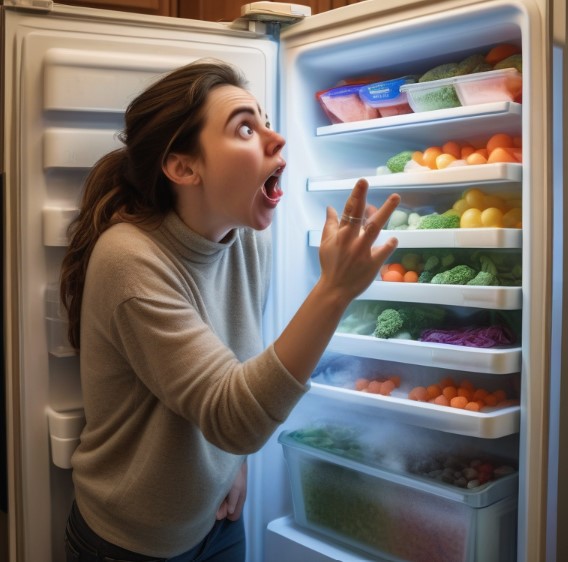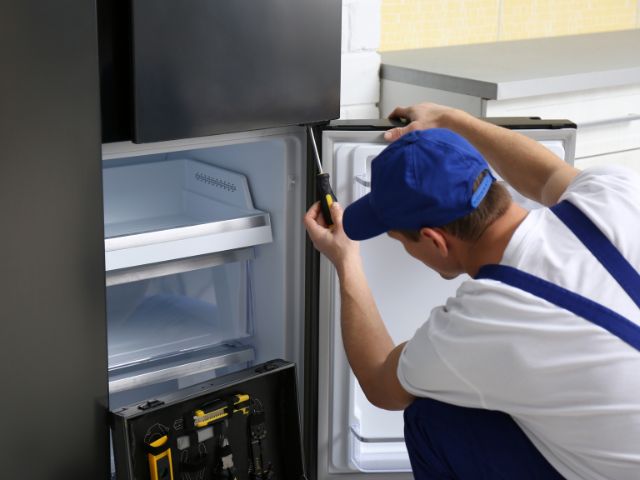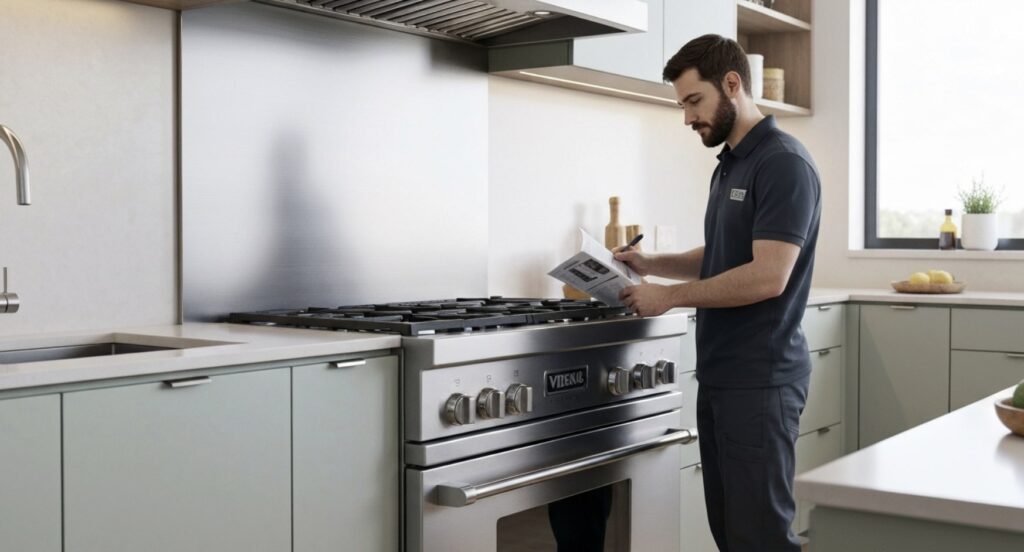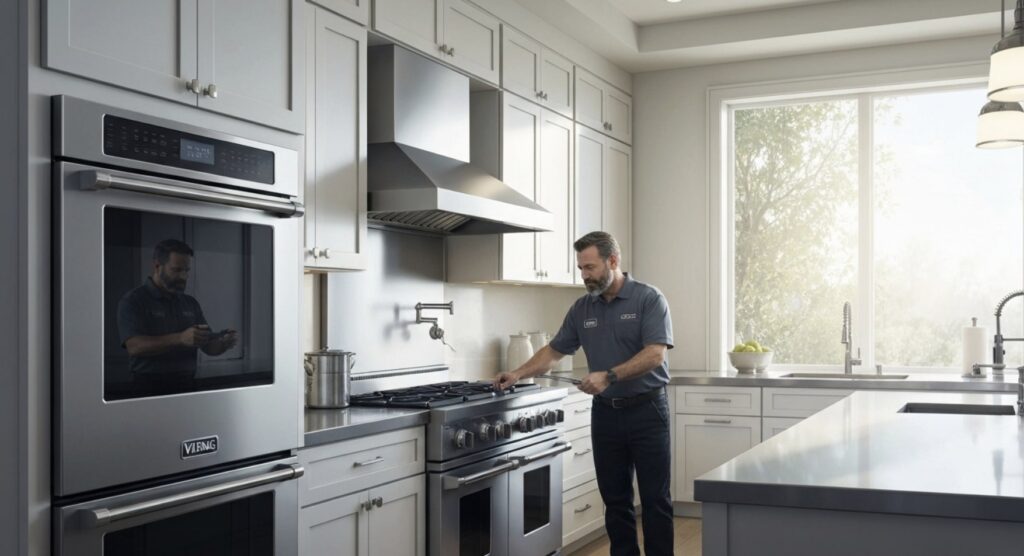A broken freezer can go from a small problem to a big one fast. It can spoil your food and cost you money. Knowing the most common freezer issues can help you save time, money, and stress. In this blog, we will discuss some of the most common freezer issues that many people face. By being aware of these problems, you can take proactive steps to prevent them and ensure your freezer functions smoothly. Let’s dive in and say goodbye to the most common freezer problems together!
Common Freezer Problems and How to Fix Them
Keeping a freezer in good shape is very important. It helps to keep food fresh and prevents sudden failures. Let’s look at some common freezer problems and how to solve them.
1. Frost Build-up Issues
One common freezer problem is too much frost build-up. This happens when warm, moist air gets into your freezer. This air turns into water that freezes on the surfaces inside. There are a few reasons why frost builds up, including:
- Frequent door openings: Opening the freezer door lets warm air in. This leads to condensation and then frost.
- Faulty door seal: A broken or old door seal lets warm air into the freezer, even when the door is closed.
- Incorrect temperature settings: If the freezer is set too low, it can cause too much frost to form.
Solution: To deal with frost build-up, you should defrost regularly. For small amounts of frost, take out the frozen items, unplug the freezer, and let the frost melt. You can use a hairdryer on a low setting to help speed this up. If there is a lot of frost, you may need a professional freezer repair to fix issues like a bad door seal.
2. Freezer Not Cooling Enough
A freezer that can’t keep the right temperature can ruin your frozen food. Here are some reasons for this common freezer issue:
- Clogged vents: Blocked vents stop cold air from circulating. This makes it hard for the freezer to stay at the right temperature.
- Dirty condenser coils: Dust on the coils makes it hard for them to release heat. This can lead to poor cooling.
- Faulty thermostat: A broken thermostat may not control the freezer temperature correctly.
Solution: First, check the vents and make sure they are clear. If your freezer is a manual defrost type, defrosting it can help. This removes ice that may block air flow. Cleaning the condenser coils, often found at the back or bottom of the freezer, is also important. If these steps don’t fix the problem, you might need an expert to look at the thermostat.
3. Unusual Noises from the Freezer
Some sounds are normal when a freezer is working, but other noises may mean there are problems. Here are some reasons behind these noises:
- Clicking sounds: These usually come from the defrost timer or ice maker. They are typically not a reason to worry.
- Humming or buzzing: A soft humming is normal when the freezer is running. However, loud or strange buzzing could mean there is an issue with the compressor or fan motor.
- Rattling or vibrating: Check if the freezer is level and stable. If it is not, adjust the leveling legs. Loose parts or objects touching the freezer can also cause these sounds.
Solution: It is important to find out where the noise is coming from and what it is. If you hear loud or ongoing noises, especially if the freezer is not cooling well, it’s wise to call a repair expert. Using a noisy freezer could make the problem even worse.
4. Freezer Frequently Overheating
Overheating can be a big problem. It may cause the compressor to fail and shorten how long your freezer lasts. Here’s what you need to know:
- Overloaded circuits: Using too many devices on one circuit can make it overload, causing overheating.
- Poor ventilation: If air cannot flow well around the freezer, this keeps heat inside and raises the temperature.
- Faulty condenser fan: A fan that cools the compressor is important. If it does not work, it can lead to overheating.
Solution: Make sure to plug your freezer into its own circuit. Also, keep enough space around it for air to circulate. Cleaning the condenser coils often can help stop overheating. If these things don’t work, the fan could be broken and may need professional freezer repair.
5. Ice Maker Malfunctions
Ice maker problems can be very annoying. Issues like frozen dispensers and lack of ice can happen. Here are some common reasons for these problems:
- Frozen water line: If the water line is frozen, water can’t get to the ice maker. This stops ice from being made.
- Clogged filter: A clogged water filter can block water from flowing to the ice maker. This affects how well it works.
- Faulty ice maker parts: Just like any other machine, ice makers can have parts that wear out or break, which impacts how well they work.
Solution: If you think your water line is frozen, you can try thawing it by using a hair dryer on a low setting. Make sure to change the water filter regularly, as suggested by the maker, to help your ice maker work better. If the problem keeps happening, call a professional like Viking Appliance Repair Pros to check and fix any broken parts.
6. Water Leakage Problems
Water leaks from a freezer can mean different problems. These can be small blockages or bigger plumbing issues. Here are a few common reasons why this happens:
- Clogged defrost drain: A clogged defrost drain keeps melted frost from draining properly. This can lead to water build-up and leaks.
- Damaged drain pan: If the drain pan under the freezer is cracked or damaged, it can cause water to leak.
- Leaking water inlet valve: This valve brings water to the ice maker and can start leaking over time.
Solution: First, check the defrost drain for clogs and remove any blockages you find. If you see damage on the drain pan, it needs to be replaced. Finding and fixing a leaking water inlet valve usually needs a professional’s help.
7. Door Seal Damages
A damaged or worn-out door seal can compromise your freezer’s efficiency and lead to a host of problems. Here’s why it’s crucial to address door seal issues:
- Temperature fluctuations: A compromised door seal allows cold air to escape, forcing the freezer to work harder and potentially leading to temperature inconsistencies.
- Increased energy consumption: As the freezer struggles to maintain its temperature, it consumes more energy, leading to higher electricity bills.
- Frost build-up: Warm air seeping through a damaged seal contributes to excessive frost formation inside the freezer.
Solution: Regularly inspect the door seal for signs of wear and tear, such as cracks, tears, or mold. You can test the seal by closing the freezer door on a dollar bill. If you can easily pull the bill out, the seal needs replacing.
|
Issue |
Description |
|
Cracks |
Small breaks in the seal, allowing air leakage |
|
Tears |
Larger rips or tears in the seal, compromising its integrity |
|
Mold |
Mold growth indicates moisture trapped in the seal, signaling potential air leakage |
|
Deformed shape |
Warping or twisting of the seal, preventing a tight seal |
Preventive Measures for Freezer Maintenance
Addressing freezer problems directly is important. However, taking steps to prevent these problems can help you avoid them altogether. Like any appliance, caring for your freezer can improve its lifespan and efficiency. Let’s look at some simple and effective maintenance routines.
Regular Cleaning and Defrosting
One of the easiest and most helpful ways to keep your freezer working well is by cleaning and defrosting it regularly. Here’s how to do it:
- Cleaning: Try to wipe down the inside of your freezer with a damp cloth and some mild cleaner at least once a month. This will help avoid bad smells and get rid of food bits that can cause frost.
- Defrosting: If your freezer needs manual defrosting, do it when the frost builds up to about a quarter-inch thick. Defrosting often helps it cool better by stopping ice from blocking the airflow.
By adding these cleaning and defrosting steps to your freezer care, you can stop common freezer problems and keep it running well.
Checking and Replacing the Door Seal
The door seal is important for keeping a tight seal and stopping temperature changes. But after a while, the seal can get worn, cracked, or broken. This causes air leaks, which makes the freezer work less efficiently.
Check the door seal often for any damage. You can do the “dollar bill test.” Just close the door on a dollar bill and try to pull it out. If it slips out easily, there is a leak. Fixing a bad door seal is an easy freezer repair. It can really help your freezer work better and last longer.
Proper Ventilation Around the Freezer
Ensuring good ventilation around your freezer is very important. It helps stop many common freezer problems, especially overheating. Here’s why this matters:
- Heat loss: Freezers make heat while they work. Good ventilation lets this heat escape. If airflow is blocked, the compressor may overheat and break down.
- Best performance: When there’s proper airflow, the freezer does not need to work too hard to stay cold. This helps save energy and keeps your appliance in good shape.
Make sure there is enough space between your freezer and nearby walls or cabinets. Do not put things on or near the freezer that could block airflow.
Avoiding Overloading the Freezer
It’s easy to want to fill up your freezer, but packing it too tightly can cause issues. Here’s why:
- Airflow issue: If you overload your freezer, airflow is blocked. This makes it hard for cool air to move around. As a result, some areas can become warm. This can harm the quality of your frozen food.
- Pressure on the compressor: An overloaded freezer makes the compressor work too hard. It has to run longer to keep everything cold. This can damage the compressor and cause it to break down sooner than it should.
It’s okay to keep your freezer full, but don’t stuff it completely. Organize your food so you can use the space well and allow for good airflow.
Conclusion
Keeping your freezer in good shape is important. It helps to stop the common freezer issues like frost, cooling problems, and strange noises. You should clean it often, make sure there is good air flow, and check the door seal. These simple steps can help your freezer last longer. If you have any problems, fix them right away to avoid more damage. For more advice on how to care for your freezer, you can check our complete guide on fixing Viking Freezer Light Not Working. Taking care of your freezer will help keep your food fresh and safe to eat.
Frequently Asked Questions
How often should I defrost my freezer?
The time to defrost your freezer depends on the type you use. If you have a manual defrost freezer, you should defrost it when the frost builds up to about a quarter-inch thick. Freezers that have automatic defrost cycles usually take care of this by themselves. But if you see too much frost, you may need to defrost it manually.
What should I do if my freezer is overcooling?
If your freezer is too cold and freezing items solid, you should check the temperature settings. Make sure they are not set too low. Turn the settings to a bit warmer and keep an eye on how your freezer works.
Can a damaged door seal affect my freezer’s efficiency?
A damaged door seal can really hurt how well your freezer works. If the seal is broken, cold air can get out. This makes your freezer work harder. As a result, it uses more energy to keep the inside cold.







